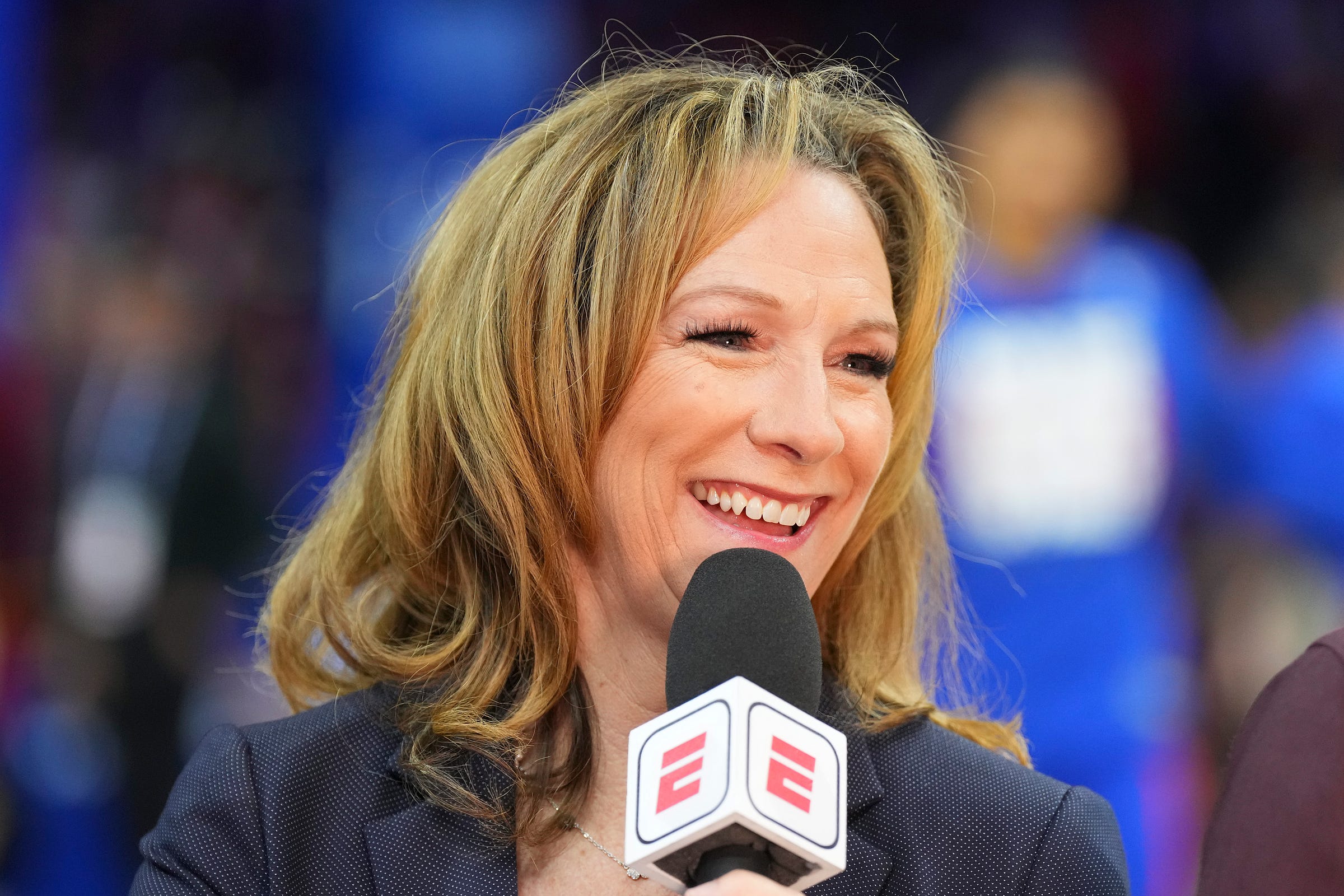“A knack for talking about sports”
An interview with sports announcer Beth Mowins
Words: Sydney, New Jersey
Beth Mowins is an American play-by-play announcer and sports journalist for ESPN, CBS, and Marquee Sports Network. She typically calls women’s college sports, and became the second woman to call nationally-televised college football games for ESPN in 2005.
I interviewed Mowins to gain insights into her experience as a female in a male-dominated field, and to hear about her journey to success. Here’s our conversation:
What inspired you to pursue a career in sports journalism, and how did you break into the industry?
“When I was younger, my Dad was a high school basketball coach, my mom was a sports fan, and I had three brothers. Back in those days, all the kids in our neighborhood in Syracuse played outside and played sports. I just seemed to have a knack for talking about sports as well. So it all started out by playing kickball, dodgeball, and wiffleball.
When I started watching the coverage of sports on television, I started realizing this play-by-play role. The analyst was usually someone who was an Olympian, coach, or champion. I wasn’t sure I was going to be that, I hoped I might. I started working in local television and it grew from there.”
What were some of the biggest challenges you faced as a woman in a male-dominated field, and how did you overcome them?
“When I first started doing this, there weren’t a whole lot of women around. In fact, I was often the only woman on the crew. What I found early on was that if you went out and put in the work and proved yourself, then people around you would start to notice and start asking you to get involved in more events.
The hard part was getting your foot in the door and then convincing someone to give you a chance to try other things. You start out as a runner and pulling cables for the camera guy, and then eventually you talk your way into reporting. It was just a lot of determination. Honestly, there wasn’t really anything else that I wanted to do. If there was ever a hurdle in front of me, it was a matter of how to get through it.”
Can you share a defining moment in your career that helped shape your journey as a sports broadcaster?
“I’ve always relied heavily on my background as a player. Playing a lot of different sports I think has helped me tremendously, and being around my Dad and all his coaching buddies from a very young age. Then I was calling stuff locally and then got an interview to start calling the Big East; they wanted to start up a women’s basketball “game of the week”. I was probably 22-23 years old at the time. I had been calling things at Syracuse, I set up a tape, I sent it in, I got an interview, and ended up getting the job. That was a breakthrough moment for me because then I was calling games all around the Northeast; they saw me in New York and Connecticut where ESPN is. I started doing games at UConn (University of Connecticut) and eventually got my foot in the door at ESPN.”
Have you noticed any significant shifts for women in this career since you started?
“Oh, absolutely. When I first started out, the entry point for any woman was as a sideline reporter. That was kind of the only job available to you, and you had to catch a break or find the people doing the hiring who wanted to give a woman a job as an analyst or a host in the studio, or as a play-by-play announcer.
I was fortunate to come in around the time that a lot of women’s sports were starting to be televised, and to be honest the guys didn’t always want to report them so there was an opportunity for women like me to get involved. What I’ve seen now is that over time, more and more women are getting involved in all different jobs in this industry. What’s been really exciting is the growth of women covering even major men's events as a play-by-play announcer.”
Have you had any role models or people you looked up to, or did you develop your own style of broadcasting?
“A little bit of both. You know, you always want to use your own personality and your own style. There were a lot of people that I looked up to though. Phyllis George was one of the first women that was on television; she was on the old NFL Today Show back in the 1970s.
Over the years there were a lot of different women: Robin Roberts, Lesley Visser, and so many others. I’ve been lucky to grow up in the business with the likes of Doris Burke, Holly Rowe, Michele Smith, Jessica Mendoza. I really looked up to those guys as well and appreciate all that they’ve been able to accomplish.”
What is a piece of advice you would give to women aspiring to be sports journalists?
“I always like to say never say no for no particular reason. If you’re offered a job, you should take it. Take advantage of every opportunity because it is still very much a people’s business; your networking, the friends you make, the mentors that you find along the way. I always say I’ve never been hired by a stranger; it’s always been a friend, former co-worker, friend of a friend, etc. The big thing is that nobody is going to give it to you, you gotta go and take it.”
Sydney is a New Jersey-based participant in Youth Media Forward: meet the New York New Jersey participants here



